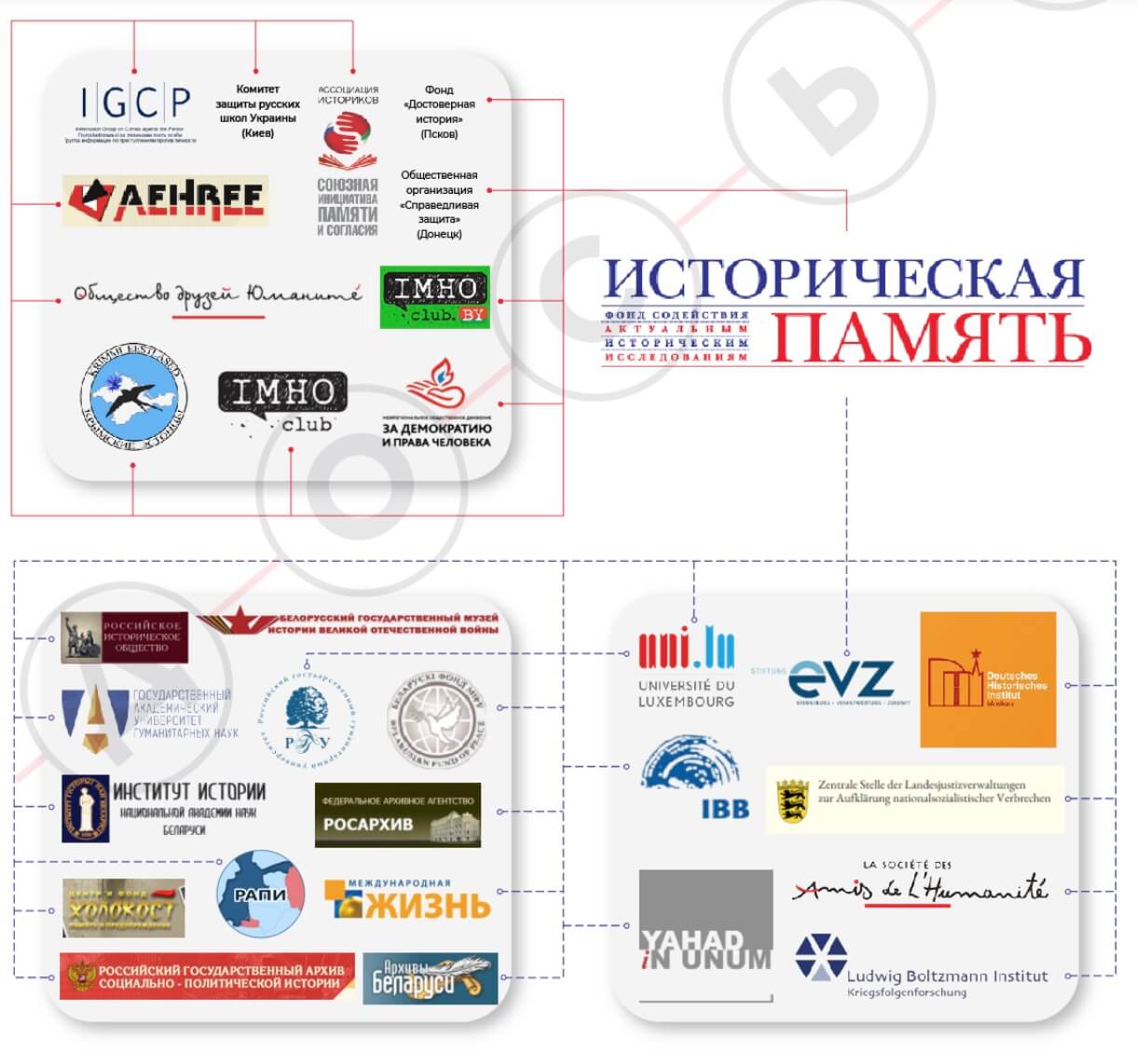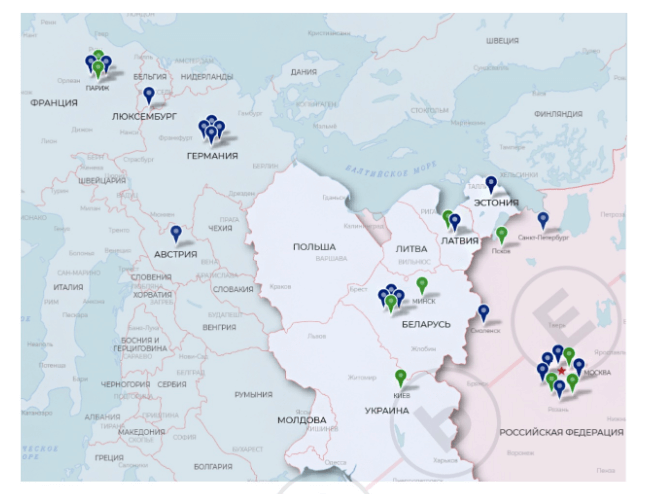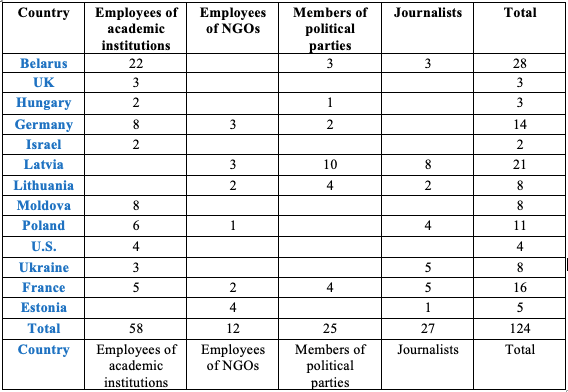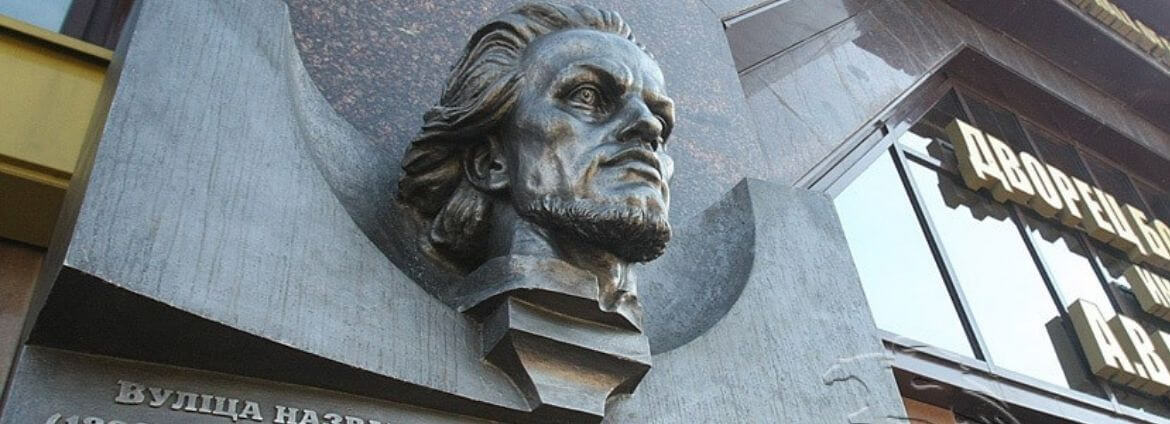One of the unexpected consequences of the political crisis provoked by the controversial results of the presidential elections and the unprecedented violence of the security forces against protesters was the campaign of defamation of historical national symbols and national heroes launched in Belarusian state media, regarding which there were no conflicts in Belarusian society until recently. Foremost, we are talking about one of the leaders of the 1863 uprising, Kastuś Kalinoŭski.
At the vanguard of the bullying campaign was an initiative called the Russian-Belarusian Association of Historians’ Union Initiative for Memory and Consent, which was established by the Institute of History of the National Academy of Sciences of Belarus and the Russian foundation Historical Memory in 2016. It was this group of historians who actively participated in the so-called «wars of memory,» published studies on the participation of collaborators of Eastern European countries in crimes against humanity (note that this topic does not cause any controversy in Belarus – assessments have long been given and a national consensus on Nazi crimes has developed in the country), but did not leave out the older events, denigrating the leaders of the national liberation movements who fought against Russian imperialism.
The initiative did not attract much attention until the main theories of supporters of the Kremlin’s «soft power» were amplified through Belarusian propaganda and were voiced personally by Alexander Lukashenko.
What kind of organization is it that can impose its own views on the political elite of an entire country? Let’s look into it.
To begin with, there is no official Russian-Belarusian association of historians. This organization is not registered either in Belarus or in Russia. Even though until recently activities on behalf of an unregistered organization were criminalized in Belarus (Article 193.1 of the Criminal Code was abolished only in 2018, while administrative responsibility remained), the «association» was able to hold dozens of public events, publish hundreds of articles, publish the magazine Belarusian Historical Review, launch the website belhistory.by and remain active on social media. Its work was covered by the largest state media, and its frontman in Belarus was Vyacheslav Danilovich, the director of the Institute of History of the National Academy of Sciences, who took a promotion to head the Academy of Management under the President.
It is known that the launch of the «association» was financed through a Russian grant of 2.5 million RUB from the National Charitable Foundation. The money for the project was allocated to the Russian foundation for the promotion of contemporary historical research Historical Memory, which is headed by the Russian Alexander Dyukov.
On August 4, 2020, Dyukov and three other Russian citizens registered the Association of Historians of the Union State, after which they renamed the accounts on social media that previously belonged to the Union Initiative of Memory and Consent. In early April, the website belhistory.by also stopped working. Judging by Whois, they forgot to pay for the domain and it went to auction.
Historical Memory Foundation
The key partner of the «association» was the Russian foundation Historical Memory. This organization is notorious in the Baltic states, Poland, Ukraine, and Western Europe, but it showed its greatest activity in Latvia and Belarus.
At the end of November 2020, the Russian publication Dossier published an investigation into the Kremlin’s interference in the internal politics of neighboring countries. Among the documents released was a report on the activities of the Russian non-profit organization Historical Memory Foundation for 2008-2018. It differs significantly from that organization’s public record for the same period and sheds much light on the objectives and hybrid nature of the organization.
The document says that the statutory goal of the foundation is «to promote objective scientific research on relevant topics of Russian and East European history of the twentieth century to counteract the falsification of history to the detriment of Russia’s interests. The organization also conducts work in the field of human and civil rights protection of the Russian-speaking population in Ukraine and the Baltic states.»
The priority area of the foundation is the post-Soviet space: Belarus, Latvia, Lithuania, Moldova, Poland, Ukraine, and Estonia. The foundation is financially and publicly supported by Russian state structures.
Network
Historical Memory has created an extensive network of «controlled» (as they themselves call it) non-governmental organizations and established test contacts within the academic community of the countries mentioned above.
«Stable partnerships have been established with specialized academic institutions, universities, and non-governmental organizations in post-Soviet and EU countries, including Austria, Germany, and France,» the non-public report says.
The report directly states that the information portal IMHOclub.lv operates under the control of this organization, which was the subject of investigation by the Security Police of the Republic of Latvia, as well as the information portal IMHOclub.by, which was repeatedly appeared in the list of sites that are part of a network that have a hybrid impact on the Belarusian segment of the internet.

Primary controlled (red line) and partner (blue dotted line) organizations.
Non-publicly, the foundation cooperates with the Western journalist community through its own NGOs, for example, the foundation for the support of independent journalism Society of Friends of L’Humanite, and organizes publications «in the mainstream press of European countries» and press tours of Western journalists to «problem» points in the post-Soviet space (Donbass, Crimea, Abkhazia).
«To date, the foundation has created a research network that allows for the efficient implementation of archival research on a given topic in the archives of Belarus, Germany, Latvia, Lithuania, the U.S., France, and Estonia. Both Russian and foreign historians are involved in the work on these thematic projects; the final academic publications and exhibits are issued under the stamp of academic and archival institutions, and respected Western NGOs working on issues of history,» the founders of the fund report on their work.

Figure 2. Geographic partners and controlled organizations
Note: Green flags represent controlled organizations and blue flags represent partner organizations.
Active measures in Belarus
According to the report, work in Belarus has been conducted since 2016 both directly by the foundation and through its subsidiary organization – the Russian-Belarusian Association of Historians’ Union Initiative of Memory and Consent, created jointly with the Institute of History of the National Academy of Sciences of Belarus.
«In 2016-2018, under the auspices of the association, 4 international academic conferences and 6 round tables were held, in which 92 historians from Russia, Belarus, Poland, Lithuania, Slovakia, and Israel took part. 4 monographs and 6 collections of documents were published, the presentations of which took place in Moscow and Minsk,» the document says.
The Russian foundation identifies several priority tasks for work in our country:
- the forming of ideas about the joint history of the two countries that meet the interests of Russia and which are scientifically accurate;
- organization of close interaction with local academic, archival, and museum structures and the implementation of joint projects;
- influencing the content of historical and political projects implemented by local academic structures at the initiative of the Administration of the President of the Republic of Belarus;
- systemic opposition and discrediting of the activities of anti-Russian nationalist historians;
- support of Belarusian historians loyal to Russia.
In the report, representatives of the foundation boast of one successful case in discrediting the idea of creating a memorial in Kurapaty.
«The contacts established in the political and expert circles of Belarus made it possible to find out (I wonder who it could be – author’s note) that the Administration of the President of the Republic of Belarus ordered a study of the problematic issue of Kurapaty. Over a short period, the Historical Memory Foundation carried out a study of the number of those executed in Kurapaty. Based on the research results, a series of articles on the real scale of Soviet repressions in Belarus was published in Russian academic journals. It was shown that not 250,000, but 7-8,000 people were shot in Kurapaty. Through the opportunities available, we managed to include the fundamental assessments published by us in a concluding collection for the Administration of the President of the Republic of Belarus,» the document says.
As a result, Russian hybrid historians prepared a collection of documents on the end of the Great Terror of 1937-1938 in the BSSR in cooperation with the National Archives of Belarus.
«These publications will make it possible to consolidate in the Belarusian academic and media circulation appropriate ideas about the scale of Soviet repressions that meet Russian interests,» wrote representatives of the foundation without hesitating to explain the main task of their historical research.
Another successful case, according to representatives of the foundation, describes an «active measure» to exert «a certain impact on Belarusian-Ukrainian and Belarusian-Latvian relations» by forcing the painful topic for neighboring peoples of crimes committed on the territory of Belarus by Baltic and Ukrainian collaborators.
For this, the Historical Memory Foundation prepared, published, and presented in Minsk three documentary collections about crimes during the Second World War.
The authors of the report do not hide the fact that Belarus is the most comfortable country for the work of Historical Memory and, obviously, highly value the level of mutual trust and cooperation with the Belarusian authorities.

A working network of historians and political experts who collaborate on an ongoing basis with the foundation and its subsidiaries.
Who is Alexander Dyukov?
The scope of the work of Historical Memory and the close interaction of the organization with Russian state structures forces us take a closer look at the person who is the head of the foundation.
Alexander Reshidovich Dyukov is a Russian historian-archivist, researcher at the Institute of History of the Russian Academy of Sciences, and coordinator of the Information Group on Crimes against the Person (IGCP). Interestingly, Dyukov’s passion for hybrid activities is literally in his genes. His maternal great-grandfather, Ilya Starinov, was a legendary saboteur, whom many call «the grandfather of the Soviet special forces.» Starting in the mid-1920s, Starinov trained demolition experts and saboteurs. During the war in Spain, Starinov was the organizer of sabotage activities and acted under the direct command of the creator and head of Soviet military intelligence, Yan Berzin, the chief Soviet military adviser to the republican government, Grigory Stern, and Kirill Meretskov, who later became Marshal of the Soviet Union. Later, Ilya Starinov took part in the Soviet attack on Finland and trained partisans and saboteurs for operations in the occupied territory of the Soviet Union and Eastern Europe. After the end of World War II, he participated in the suppression of the anti-communist partisan movement in Ukraine, and then taught at various universities of the MGB/KGB until 1987 – almost until the collapse of the Soviet Union. Dozens of books have been written about Starinov. He also became the prototype of one of the heroes of the popular film Underground Regional Committee Acts, which is about the organization of the partisan movement in the occupied territories of the USSR.
Such a relationship between Dyukov and Starinov, who is regarded so highly Soviet system, could be just an interesting detail, but in the late Soviet Union and present-day Russia this may say more. The Primakov and Molotov/Nikonov families are considered by many to be an example of how belonging to a certain dynasty can also be a sign of belonging to a kind of «deep state» that ensures the continuity of Russia’s political course, despite the change in the political system.
It should be noted that Dyukov, unlike many of his colleagues in the propaganda workshop, may have an opinion that differs from one officially accepted in Russia, and is really trying to rely on historical facts. He can admit to what the current Russian leadership considers inconvenient or simply denies. For example, he believes that the NKVD is responsible for the mass extrajudicial executions of Polish servicemen in Katyn. But at the same time, he does not believe that the Soviet policy towards the region was wrong.
«At the same time, grieving for those killed in Katyn, we in Russia do not forget that if Polish officers were shot in Katyn, this does not mean that the policy of the Soviet Union in Western Ukraine and Western Belarus as a whole was wrong,» he writes in one of his articles.
Dyukov calls the research of communist terror an activity directed against Russia and disputes the scale of repression against the peoples of Eastern Europe. Above we have already given the example of Kurapaty. The memorial, according to Dyukov’s colleagues, is inappropriate, since not 250,000 people were killed there, but (only?) about 7-8,000.
However, Dyukov often loses his temper. For example, he was angered by the Latvian film Soviet History, dedicated to the repressions against Latvians and Soviet-Hitler cooperation on the eve of and in the first part of World War II, writing on his Live Journal: «I am a calm person, but after watching 2/3 of the film I had one desire: to personally kill the director and to light up the Latvian embassy.»
One of Dyukov’s favorite hobbyhorses is the tragedy of the Jewish people in the territories occupied by the Nazis during the Second World War. In his articles, books, and monographs, he writes much about the role of Ukrainians, Latvians, and Lithuanians in organizing the Holocaust and about the crimes or the absence of crimes committed by occupied populations against other occupied populations. Note that in accordance with the norms of international law and agreements on the laws and customs of land war, with the actual transfer of power from the hands of the legitimate government to the enemy who has occupied the territory, the latter is obliged to take all measures in their power to restore and ensure public order and public life, respecting the laws existing in the country. Therefore, the overwhelming majority of historians agree that the occupier is responsible for the atrocities that took place in the occupied territory. Nevertheless, behind each such episode are the fate and suffering of real people, and speculation on this topic can poison relations between peoples for a long time.
Close attention to such episodes says a lot about the work style of the head of the Historical Memory Foundation. Most figuratively, his activities can be described as sticking fingers into painful wounds, which exist in significant numbers due to the tragic events of the last century.
Many experts have paid attention not only to the proximity of Historical Memory to the Ministry of Foreign Affairs and the Presidential Administration of the Russian Federation, but also to Dyukov’s amazing ability to gain access to the closed FSB archive.
«Although Alexander Dyukov, as a historian, has neither an academic degree nor outstanding professional achievements, he very easily gets access to documents stored in the archives of the Russian Federal Security Service (FSB). For ordinary historians, including citizens of Russia, the doors to this archive are firmly closed. Therefore, A. Dyukov is certainly acting with the full knowledge and approval of the FSB,» says a report by the Estonian National Guard Service.
This was also noted by the Russian historian Alexey Miller. Commenting on the book by Dyukov on the participation of the UIA in the genocide of Jews, he noted: «The first book is devoted to the policy of the UIA – the Ukrainian Insurgent Army – towards Jews. The content of the book is more or less decent. But here, as it were, is a coincidence of intentions and historical truths. Because it was important for him to show that the UIA treated the Jews badly. Indeed, they were poorly treated. What catches the eye in this book is the number of materials from the FSB archives, which, as noted, are being introduced into academic circulation for the first time.»
Miller also believes that Dyukov’s statements are destroying the space for public dialogue on historical issues.
Kastuś Kalinoŭski
A striking example of the ruining of the space for public dialogue is the “demystification” of the national Belarusian hero Kastuś Kalinoŭski, to whom the Historical Memory Foundation seems to devote more attention to than on Nazi accomplices.
The legendary Kastuś, after whom streets were named and monuments were erected under the Soviet Union, bothers Dyukov so much that to discredit him, they had to put together an entire electronic database called Victims of the Rebel Terror, 1863. These hybrid historians did not skimp and created a separate website with an attractive design that regularly publishes articles denigrating the national Belarusian hero. The topic of defamation of historical Belarusian figures not connected with Russia is being promoted by the foundation not only by pseudo-historians, but also by leading Russian media and even by Russian diplomats.
Discrediting the pages and heroes of Belarusian history that are not associated with or are opposed to Russia has become one of the main activities of the Historical Memory Foundation in our country, and the attempt to ban national symbols and the defaming of historical national heroes can be regarded as a product of the influence of the Russian authorities in general on the making of current decisions in Belarus.
P.S. From an interview with the Director of the Latvian Constitution Protection Bureau J. Kazocins (July 24, 2010):
«You are mainly talking about the publications of the Historical Memory Foundation. They are in the sphere of interests of our services… In the terminology of the services of the USSR, I would call such actions ‘active measures.»
Материал доступен на русском языке: «Активные мероприятия»: кто стоит за шельмованием беларусских национальных символов и героев










